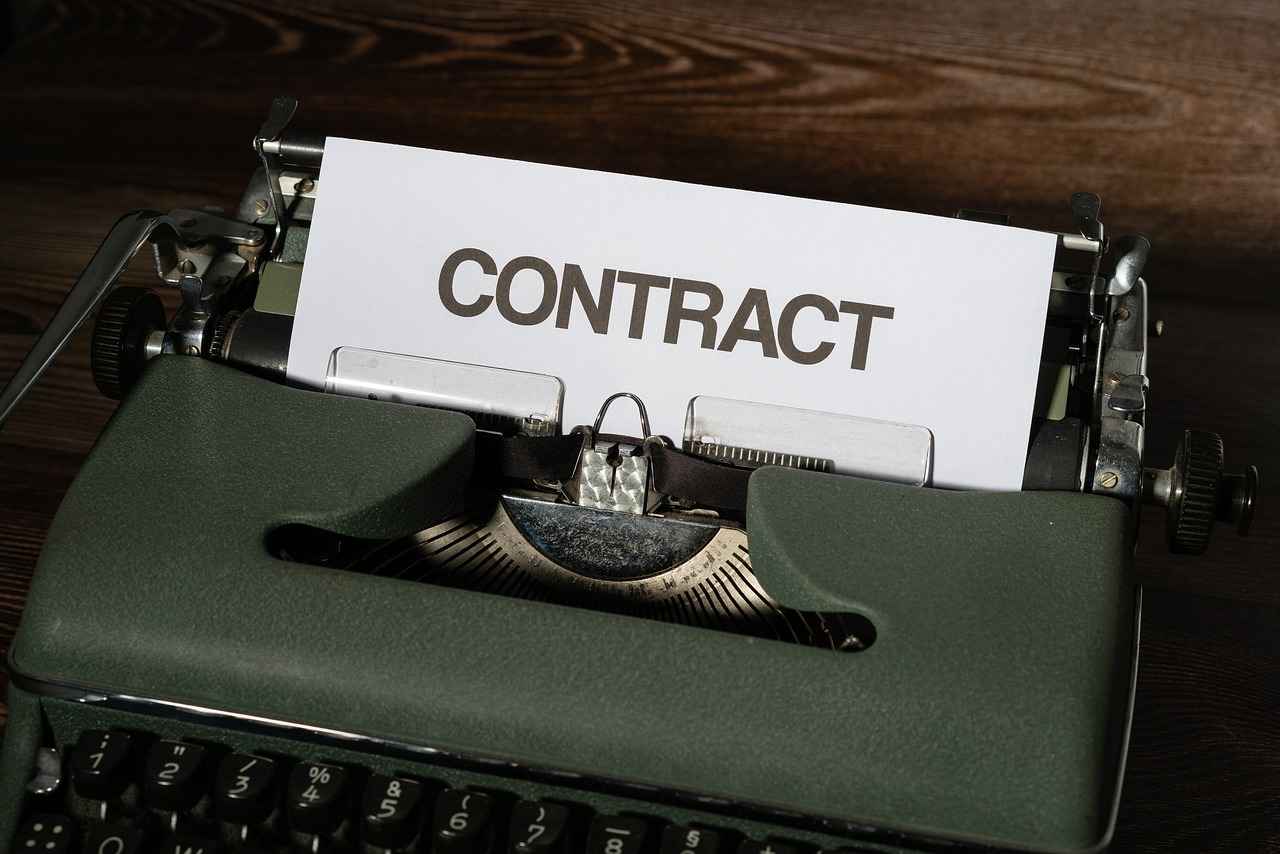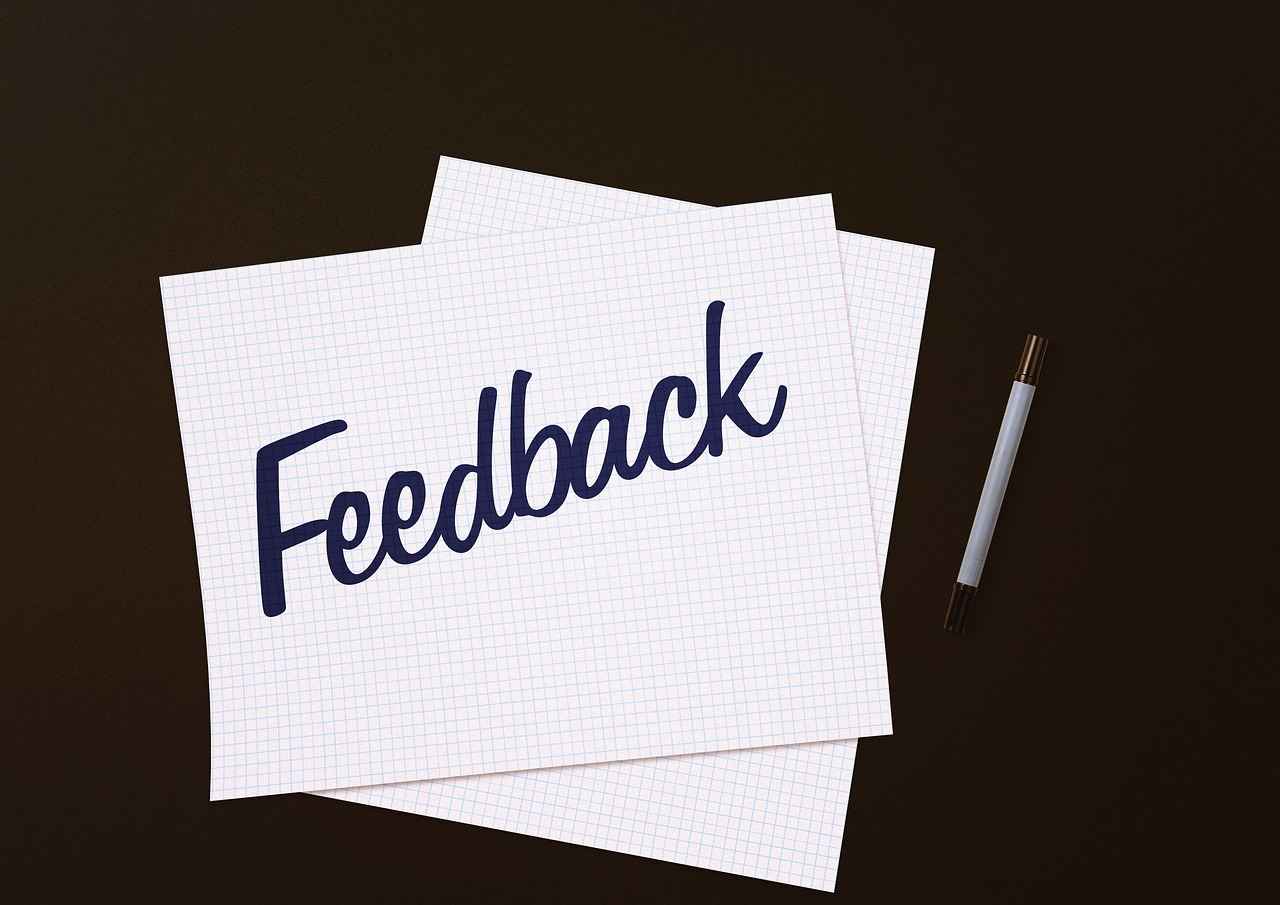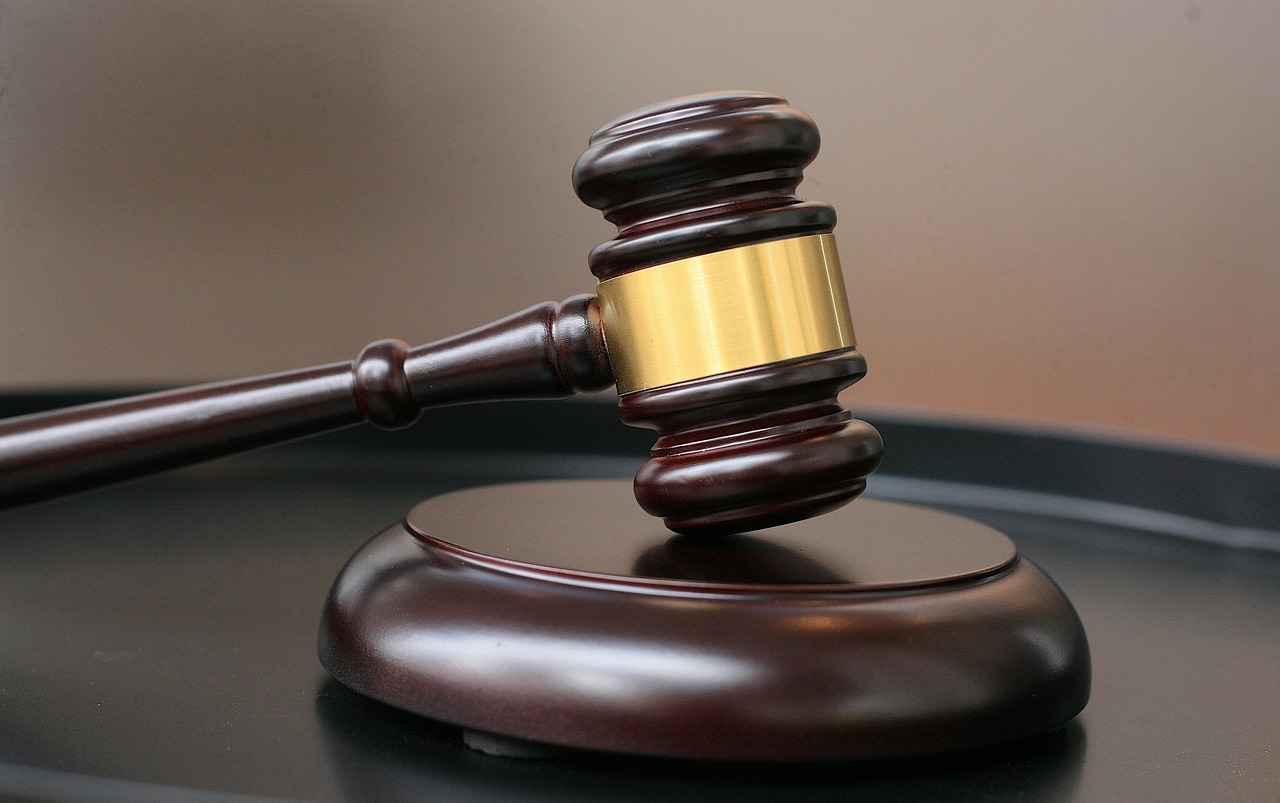This article explores the most common types of legal cases in the U.S. and provides expert guidance on finding qualified attorneys in Glendale, Arizona.
Understanding Personal Injury Cases
Personal injury cases are among the most common legal matters in the United States. These cases arise when an individual suffers harm due to the negligence or wrongful actions of another party. Common incidents include car accidents, slip and falls, and workplace injuries. To find a skilled personal injury attorney, consider their track record in similar cases, client testimonials, and their willingness to take cases to trial if necessary. Look for attorneys who offer free consultations, allowing you to assess their expertise without financial commitment.
Medical Malpractice: Navigating Complexities
Medical malpractice occurs when healthcare professionals fail to provide the standard of care, resulting in patient harm. This area of law is intricate, requiring specialized knowledge. When searching for a medical malpractice attorney, ensure they have experience in handling such cases and a strong understanding of medical terminology and procedures. Look for attorneys with a history of successful settlements or verdicts in medical malpractice claims. Additionally, consider their network of medical experts who can support your case.
Breach of Contract: Legal Remedies Explained
Breach of contract cases arise when one party fails to fulfill their contractual obligations. This can lead to significant financial losses. To navigate these disputes effectively, finding an attorney experienced in contract law is crucial. Look for lawyers who have handled similar cases and understand the nuances of contract interpretation. It’s also beneficial to choose an attorney who can negotiate settlements, as many breach of contract cases are resolved outside of court.
Property Disputes: Resolving Conflicts
Property disputes can involve issues related to ownership, boundaries, or landlord-tenant conflicts. These disputes often require the expertise of a real estate attorney who understands local property laws. When searching for a lawyer, consider their experience with similar property issues and their familiarity with local regulations. A good attorney will help you navigate negotiations and, if necessary, represent you in court to resolve the conflict efficiently.
Landlord-Tenant Disputes: Rights and Responsibilities
Landlord-tenant disputes are prevalent and can arise from eviction proceedings, rent disagreements, or property condition issues. Understanding tenant rights is essential, and finding an attorney specializing in housing law can provide significant advantages. Look for attorneys who are familiar with local landlord-tenant laws and have a track record of resolving disputes favorably for their clients. Their expertise can help ensure your rights are protected throughout the process.
Defamation Cases: Understanding Libel and Slander
Defamation cases, including libel and slander, can severely impact an individual’s reputation. If you believe you have been defamed, it is crucial to seek an attorney with experience in media law. They will understand the complexities of proving defamation, including the need to demonstrate false statements and harm to your reputation. When selecting an attorney, consider their previous cases and success rates in defamation claims.
Employment Disputes: Protecting Workers’ Rights
Employment disputes can encompass a range of issues, including wrongful termination and workplace discrimination. Finding a lawyer who specializes in employment law is vital for protecting your rights as a worker. Look for attorneys who have experience with the specific type of employment issue you are facing. They should also be knowledgeable about federal and state labor laws, as these can significantly impact your case.
Product Liability: Holding Manufacturers Accountable
Product liability cases arise when defective products cause harm to consumers. If you have been injured by a product, it is essential to seek an attorney with expertise in consumer protection and product liability. Look for lawyers who have successfully handled similar cases and understand the complexities of proving negligence on the part of manufacturers. Their experience can significantly enhance the chances of holding the responsible party accountable.
Wrongful Death: Seeking Justice for Loss
Wrongful death cases seek compensation for the loss of a loved one due to negligence or wrongful actions. This area of law is emotionally charged, and finding a compassionate attorney who specializes in wrongful death is crucial. Look for attorneys who have a track record of handling such sensitive cases and who can navigate the legal complexities while providing support to grieving families.
Class Action Lawsuits: Joining Forces for Justice
Class action lawsuits allow groups of individuals to collectively seek justice against larger entities. If you believe you have a claim that affects a group of people, it is vital to find an attorney experienced in class action litigation. Look for lawyers who have successfully managed class action cases and understand the unique challenges involved in representing multiple clients simultaneously.
Cybercrime: Legal Challenges in the Digital Age
Cybercrime encompasses a variety of offenses, including identity theft and online fraud. If you are facing issues related to cybercrime, seek an attorney with expertise in digital law. They should be familiar with the latest technologies and legal frameworks surrounding cyber offenses. Look for attorneys who have experience in prosecuting or defending cybercrime cases to ensure effective representation.
White Collar Crime: Navigating Financial Fraud Cases
White collar crime involves non-violent offenses committed for financial gain, such as fraud and embezzlement. If you are accused of a white collar crime, it is essential to find a skilled attorney with experience in this area. Look for lawyers who have successfully defended clients in similar cases and who understand the complexities of financial regulations and corporate law.
Family Law: Divorce, Custody, and Support Issues
Family law encompasses a range of issues, including divorce, child custody, and support matters. When navigating these sensitive issues, it is crucial to find an attorney who specializes in family law. Look for attorneys who have a strong understanding of local family laws and a compassionate approach to handling sensitive family matters. Their expertise can help ensure your interests are protected during difficult times.

Understanding Personal Injury Cases
Personal injury cases are a significant part of the legal landscape in the United States. These cases arise when individuals suffer harm due to the negligence or wrongful actions of another party. The spectrum of personal injury incidents is broad, ranging from car accidents to slip and fall incidents, medical malpractice, and workplace injuries. Understanding the nuances of personal injury law is essential for anyone seeking compensation for their injuries.
When navigating the complexities of personal injury claims, it is crucial to find a skilled personal injury attorney. These legal professionals specialize in advocating for victims’ rights and ensuring they receive the compensation they deserve. Here are several key factors to consider when searching for a personal injury attorney:
- Experience and Specialization: Look for attorneys who specialize in personal injury law and have a proven track record of successful cases. Their experience can significantly impact the outcome of your claim.
- Reputation: Research online reviews, testimonials, and ratings on platforms such as Avvo and Martindale-Hubbell. A reputable attorney will have positive feedback from previous clients.
- Initial Consultation: Most personal injury lawyers offer free consultations. Use this opportunity to discuss your case and evaluate the attorney’s approach and understanding of your situation.
- Fee Structure: Understand the attorney’s fee structure. Many personal injury lawyers work on a contingency fee basis, meaning they only get paid if you win your case. Clarify any additional costs that may arise during the legal process.
- Communication: Effective communication is vital. Choose an attorney who is responsive and willing to explain the legal process in understandable terms.
Additionally, it is essential to be aware of potential red flags when hiring a personal injury attorney. Avoid attorneys who make unrealistic promises about the outcome of your case or those who pressure you into signing contracts quickly. Trust your instincts; if something feels off, it’s essential to continue your search.
In major metropolitan areas such as New York City, Los Angeles, and Chicago, the competition among personal injury attorneys is fierce. This can work to your advantage, as many lawyers are eager to establish their reputations and will offer competitive rates and services. Utilize local bar associations and legal directories to find qualified attorneys in your area.
Ultimately, finding the right personal injury attorney can be the difference between receiving fair compensation and facing financial hardship due to medical bills and lost wages. By conducting thorough research and asking the right questions, you can ensure that you choose a lawyer who will fight vigorously for your rights and help you navigate the complexities of your case.

Medical Malpractice: Navigating Complexities
Medical malpractice refers to the failure of a healthcare professional to provide the standard level of care, resulting in harm to a patient. This area of law is particularly complex, as it requires a thorough understanding of both medical practices and legal principles. Victims of medical malpractice often face not only physical and emotional pain but also substantial financial burdens due to medical bills and lost wages. Therefore, it is crucial for individuals to find attorneys who specialize in this intricate field to ensure their rights are protected and justice is served.
When searching for a qualified medical malpractice attorney, individuals should consider several key factors:
- Experience: Look for attorneys who have a proven track record in handling medical malpractice cases. Experience in the field can significantly impact the outcome of a case.
- Specialization: Ensure the attorney specializes in medical malpractice law, as this area requires specific knowledge of medical standards and procedures.
- Reputation: Research the attorney’s reputation within the community. Reviews, testimonials, and referrals from previous clients can provide valuable insights.
- Consultation: Many attorneys offer free initial consultations. Use this opportunity to gauge their understanding of your case and their approach to handling it.
Additionally, it is essential to ask potential attorneys about their success rates in similar cases. Understanding how they have navigated past cases can provide clarity on their capabilities. Furthermore, inquire about their resources, such as access to medical experts who can provide testimony in your favor.
Another vital aspect is communication. A competent attorney should be able to explain complex legal and medical terminology in a way that is understandable to their clients. They should also keep clients informed throughout the legal process, providing updates and answering any questions that may arise.
In major metropolitan areas like New York City, Los Angeles, and Chicago, the competition among attorneys can be fierce. Therefore, it is advisable to utilize legal directories such as Avvo or FindLaw to compare attorneys based on their qualifications and reviews. These platforms often provide detailed profiles, including educational backgrounds, areas of expertise, and client ratings.
Be cautious of red flags, such as attorneys who guarantee specific outcomes or those who pressure you into making quick decisions. A reputable attorney will provide honest assessments and allow you the time needed to consider your options.
In summary, navigating the complexities of medical malpractice requires diligent research and careful consideration when selecting an attorney. By focusing on experience, specialization, reputation, and communication, individuals can find the right legal representation to advocate for their rights and pursue the compensation they deserve.

Breach of Contract: Legal Remedies Explained
Breach of contract cases occur when one party fails to meet their obligations as outlined in a legally binding agreement. This can happen in various contexts, such as business transactions, employment agreements, or real estate contracts. Understanding the nuances of breach of contract is essential for anyone involved in a legal dispute, as it can lead to significant financial losses and complications.
When pursuing a breach of contract claim, it is crucial to demonstrate that a valid contract existed, that one party breached the contract, and that the other party suffered damages as a result. Legal remedies for breach of contract typically fall into two categories: compensatory damages and specific performance. Compensatory damages aim to put the injured party in the position they would have been in had the contract been fulfilled. Specific performance, on the other hand, is a legal remedy that compels the breaching party to fulfill their contractual obligations, typically used in cases involving unique goods or properties.
Finding an attorney with experience in contract law is vital for navigating these complex legal waters. Here are some practical steps to identify the right legal representation:
- Research and Referrals: Start by asking for referrals from friends, family, or colleagues who have dealt with similar issues. Online platforms like Avvo and FindLaw can also provide valuable insights into attorneys’ backgrounds and client reviews.
- Check Credentials: Look for attorneys who specialize in contract law and have a proven track record of handling breach of contract cases. Verify their credentials, including their education, bar admission, and any relevant certifications.
- Consultation: Schedule consultations with potential attorneys. Many offer free initial consultations, allowing you to assess their communication style, expertise, and whether they understand your specific situation.
- Discuss Fees: Be clear about the attorney’s fee structure. Some may charge hourly rates, while others might work on a contingency basis. Ensure you understand all potential costs before proceeding.
- Red Flags: Be wary of attorneys who make unrealistic promises or guarantees regarding the outcome of your case. Additionally, lack of transparency in fees or unwillingness to provide references can be warning signs.
In conclusion, successfully navigating a breach of contract case requires understanding the legal framework and finding the right attorney to represent your interests. With the right guidance, you can pursue the necessary legal remedies and protect your rights effectively.

Property Disputes: Resolving Conflicts
Property disputes can arise from various issues, including ownership, boundaries, and landlord-tenant conflicts. These disputes can create significant stress and financial strain for those involved. Understanding the nuances of property law is essential for effectively navigating these conflicts.
One common type of property dispute involves ownership issues. This can occur when multiple parties claim rights to the same property. It is crucial to gather all relevant documentation, such as deeds and titles, to establish clear ownership. Consulting a knowledgeable real estate attorney can help clarify these complexities and provide guidance on how to proceed.
Boundary disputes are another frequent source of conflict. These disputes often arise when property lines are unclear or contested. Homeowners may find themselves in disagreement with neighbors over fences, trees, or other structures that may encroach on their property. A surveyor can be instrumental in resolving these issues, but having a real estate attorney can ensure that your rights are protected throughout the process.
Landlord-tenant disputes are also prevalent, particularly in urban areas where rental properties are abundant. Issues can range from eviction proceedings to disagreements over security deposits and property maintenance. Tenants should be aware of their rights under local laws, and landlords must adhere to regulations governing rental agreements. Engaging an attorney who specializes in housing law can help both parties understand their rights and responsibilities, facilitating a more amicable resolution.
Resolving property disputes efficiently often requires mediation or negotiation. A skilled attorney can serve as a mediator, helping both parties come to an agreement without the need for lengthy court proceedings. In cases where litigation is unavoidable, having a knowledgeable attorney can significantly impact the outcome of the case.
When searching for a real estate attorney, consider the following factors:
- Experience: Look for attorneys with a proven track record in handling property disputes.
- Specialization: Ensure the attorney specializes in real estate law and has experience with the specific type of dispute you are facing.
- Reputation: Seek recommendations from friends, family, or online reviews to gauge the attorney’s reputation.
- Communication: Choose an attorney who communicates clearly and promptly, as effective communication is vital in legal matters.
- Fees: Discuss fee structures upfront to avoid surprises later on.
In conclusion, property disputes can be complex and challenging, but with the right legal support, they can be resolved effectively. Engaging a knowledgeable real estate attorney is crucial for navigating these conflicts and protecting your interests.

Landlord-Tenant Disputes: Rights and Responsibilities
Landlord-tenant disputes are a prevalent issue in the United States, often arising from misunderstandings or disagreements regarding rental agreements, property conditions, and tenant rights. These disputes can manifest in various forms, including **evictions**, **rent disputes**, and issues related to the **maintenance** of the property. It is essential for both landlords and tenants to understand their rights and responsibilities to navigate these conflicts effectively.
- Evictions: Eviction is a legal process where a landlord seeks to remove a tenant from a rental property. This often occurs due to non-payment of rent or violations of lease terms. Tenants have specific rights during this process, including the right to receive proper notice and the opportunity to contest the eviction in court.
- Rent Disputes: Rent disputes often arise when tenants believe their rent has been raised unjustly or when landlords fail to maintain agreed-upon rental conditions. Understanding local rent control laws and regulations is crucial for both parties.
- Property Conditions: Tenants have the right to live in safe and habitable conditions. If a landlord fails to address necessary repairs, tenants may have legal grounds to withhold rent or take other actions to ensure their living conditions meet legal standards.
Understanding Tenant Rights
Tenants have several rights protected by state and federal laws. These rights include but are not limited to:
- The right to a habitable living environment.
- The right to privacy, which means landlords cannot enter the property without proper notice.
- The right to be free from discrimination based on race, gender, or other protected characteristics.
- The right to organize and participate in tenant unions.
Finding an Attorney Specializing in Housing Law
When disputes escalate, it may be necessary to consult an attorney specializing in housing law. Here are some tips to find the right legal representation:
- Research Local Attorneys: Utilize online legal directories such as Avvo or FindLaw to find attorneys with expertise in landlord-tenant disputes in your area.
- Check Credentials: Look for attorneys with experience in housing law, and verify their credentials, including bar association membership and any relevant certifications.
- Read Reviews: Client reviews and testimonials can provide insight into an attorney’s effectiveness and approach to handling disputes.
- Consultation: Many attorneys offer free consultations. Use this opportunity to discuss your case and gauge the attorney’s understanding and approach to your specific situation.
Red Flags to Avoid
When hiring an attorney, be mindful of potential red flags:
- Lack of Communication: If an attorney is difficult to reach or does not respond promptly to inquiries, it may indicate a lack of commitment.
- Unclear Fees: Ensure that the attorney provides a clear explanation of their fee structure. Be wary of those who are vague or unwilling to discuss costs upfront.
- Negative Reviews: While every attorney may have a few negative reviews, a pattern of dissatisfaction can indicate potential problems.
In conclusion, understanding the intricacies of landlord-tenant disputes is essential for both parties involved. By knowing your rights, finding a qualified attorney, and being aware of potential pitfalls, you can navigate these disputes more effectively and achieve a favorable resolution.

Defamation Cases: Understanding Libel and Slander
Defamation cases, which encompass both libel and slander, are critical legal matters that can have profound effects on an individual’s or a company’s reputation. The distinction between these two forms of defamation is essential for understanding how to navigate these complex legal waters. Libel refers to defamation that occurs in a fixed medium, primarily written statements, while slander pertains to spoken statements. Both can lead to significant damage to one’s character and standing in the community, making it imperative for affected parties to seek legal recourse.
When pursuing a defamation case, individuals must first establish that the statement in question was false, damaging, and made with a degree of fault, which varies depending on whether the plaintiff is a public figure or a private individual. Public figures must prove actual malice, meaning the statement was made with knowledge of its falsity or with reckless disregard for the truth. In contrast, private individuals only need to demonstrate negligence.
Given the nuances of defamation law, it is crucial to engage an attorney who specializes in media law or defamation cases. Here are some practical steps to find the right legal representation:
- Research Specialization: Look for attorneys who specifically handle defamation cases, as they will have the necessary expertise and understanding of the legal landscape.
- Review Credentials: Check the attorney’s educational background, years of experience, and any relevant certifications or memberships in legal associations.
- Seek Referrals: Ask friends, family, or colleagues for recommendations, especially if they have previously dealt with similar legal issues.
- Utilize Online Platforms: Websites like Avvo, Martindale-Hubbell, and FindLaw provide listings and reviews of attorneys based on their practice areas.
- Schedule Consultations: Many lawyers offer free initial consultations. Use this opportunity to assess their approach, communication style, and understanding of your case.
Moreover, be wary of red flags when selecting a lawyer. These may include:
- Lack of Transparency: If an attorney is unwilling to discuss their fees or the potential costs associated with your case, consider looking elsewhere.
- Poor Communication: An attorney who is difficult to reach or does not respond promptly to inquiries may not prioritize your case.
- Negative Reviews: Pay attention to online reviews and testimonials. A pattern of complaints or negative feedback can indicate potential issues.
In summary, defamation cases are sensitive and complex, requiring a specialized attorney who understands the intricacies of media law. By conducting thorough research and being mindful of red flags, individuals can find a qualified lawyer who will effectively advocate for their rights and help restore their reputation.

Employment Disputes: Protecting Workers’ Rights
Employment disputes are a significant area of concern for many workers in the United States. These disputes typically encompass a range of issues, including wrongful termination, workplace discrimination, harassment, and wage disputes. With the complexities of employment law, it becomes imperative for employees to understand their rights and the legal avenues available to them.
One of the most common forms of employment dispute arises from wrongful termination. This occurs when an employee is fired for reasons that violate federal or state laws, such as discrimination based on race, gender, age, or disability. If you believe you have been wrongfully terminated, it is crucial to consult with a lawyer specializing in employment law. They can help you assess the situation, gather evidence, and determine the best course of action.
Another prevalent issue is workplace discrimination, where employees face unfair treatment based on protected characteristics. This can manifest in various forms, such as unequal pay, denial of promotions, or hostile work environments. Employees experiencing such discrimination should be proactive in documenting incidents and seeking legal advice. A skilled attorney can guide you through the process of filing a complaint with the Equal Employment Opportunity Commission (EEOC) or pursuing legal action against your employer.
To find the best employment lawyer, consider the following steps:
- Research Credentials: Look for attorneys with specific experience in employment law. Check their educational background, years of practice, and any specialized certifications.
- Seek Recommendations: Ask friends, family, or colleagues for referrals. Personal recommendations can provide insight into an attorney’s effectiveness and approach.
- Read Reviews: Utilize online platforms like Avvo, Martindale-Hubbell, or Google Reviews to read client feedback on potential attorneys.
- Consultation: Schedule consultations with a few attorneys to discuss your case. This will help you gauge their expertise and whether you feel comfortable working with them.
- Assess Communication: A good attorney should communicate clearly and promptly. Pay attention to how they respond to your inquiries during the initial consultation.
While searching for an attorney, be aware of potential red flags. Avoid lawyers who make unrealistic promises about the outcome of your case or those who pressure you into making hasty decisions. Transparency regarding fees and the legal process is crucial; ensure you understand the fee structure before engaging an attorney’s services.
In conclusion, employment disputes can significantly impact your career and well-being. By understanding your rights and seeking the expertise of a qualified employment lawyer, you can navigate these challenges effectively and work towards a resolution that protects your rights in the workplace.

Product Liability: Holding Manufacturers Accountable
Product liability cases are critical in the realm of consumer protection, arising when defective products cause harm to individuals. These cases can involve a variety of issues, including design defects, manufacturing flaws, and inadequate warnings or instructions. As consumers, we rely on manufacturers to provide safe and effective products, and when they fail to do so, it is essential to hold them accountable.
In the context of product liability, individuals seeking justice must navigate a complex legal landscape. It is crucial to find an attorney who specializes in consumer protection and has extensive experience in handling product liability cases. Such attorneys understand the intricacies of the law and can effectively advocate for victims. Here are some steps to consider when searching for a qualified attorney:
- Research Experience: Look for attorneys with a proven track record in product liability cases. Their experience can make a significant difference in the outcome of your case.
- Check Credentials: Verify the attorney’s credentials, including their education, bar association membership, and any special certifications in consumer protection law.
- Read Reviews: Online reviews and testimonials can provide insight into the attorney’s reputation and the experiences of previous clients.
- Consultation: Many attorneys offer free consultations. Use this opportunity to discuss your case and gauge their understanding and approach.
- Assess Communication: Choose an attorney who communicates clearly and promptly. Effective communication is vital in legal matters.
When considering product liability claims, it is also essential to be aware of potential red flags. Avoid attorneys who make unrealistic promises or guarantees about the outcome of your case. Additionally, be cautious of those who are unwilling to provide references or who lack transparency in their fee structure.
In major metropolitan areas such as New York City, Los Angeles, and Chicago, the competition among attorneys can be fierce. Therefore, leveraging online platforms such as Avvo, FindLaw, and Lawyers.com can be beneficial in identifying qualified legal professionals. These platforms often provide detailed profiles, including practice areas, client reviews, and contact information.
Furthermore, consider reaching out to local bar associations for referrals. Many bar associations maintain lists of attorneys by specialization and can recommend those with a strong reputation in product liability law.
In summary, product liability cases are vital for ensuring that manufacturers are held accountable for their products. By taking the time to research and select a qualified attorney, individuals can navigate the complexities of the legal system more effectively and pursue justice for the harm they have suffered.

Wrongful Death: Seeking Justice for Loss
Experiencing the loss of a loved one is one of the most challenging events anyone can face. When that loss is due to the negligence of another party, the emotional toll can be even more profound. Wrongful death cases are designed to seek compensation for the survivors of the deceased, aiming to address the financial and emotional impacts of such a tragic event. Understanding how to navigate this complex legal landscape is essential for those seeking justice.
In wrongful death cases, the primary goal is to hold the responsible party accountable for their actions. This can involve a variety of incidents, such as fatal car accidents, medical malpractice, workplace accidents, or even criminal acts. The legal process can be overwhelming, making it crucial for individuals to find a compassionate attorney who specializes in wrongful death. Here are some key points to consider when searching for the right legal representation:
- Experience and Specialization: Look for attorneys who have a proven track record in handling wrongful death cases. Their experience will be invaluable in navigating the complexities of these claims.
- Empathy and Understanding: A good wrongful death attorney should exhibit compassion and sensitivity to your situation. They should be willing to listen to your concerns and provide support throughout the legal process.
- Reputation and Reviews: Research potential attorneys by checking online reviews and testimonials. A strong reputation in the legal community can be a good indicator of the attorney’s capability.
- Initial Consultation: Many attorneys offer free initial consultations. Use this opportunity to discuss your case and gauge the attorney’s approach and understanding of wrongful death claims.
- Clear Communication: Choose an attorney who communicates clearly and is willing to explain the legal process in terms you can understand. This will help you feel more comfortable and informed throughout your case.
Furthermore, it’s essential to understand the types of damages you can seek in a wrongful death case. These may include:
| Type of Damage | Description |
|---|---|
| Economic Damages | These include lost wages, medical expenses, and funeral costs incurred due to the death. |
| Non-Economic Damages | These cover pain and suffering, loss of companionship, and emotional distress experienced by the survivors. |
| Punitive Damages | In cases of gross negligence or intentional harm, punitive damages may be awarded to punish the wrongdoer. |
When pursuing a wrongful death claim, it’s also important to be aware of the statute of limitations, which varies by state. This is the timeframe within which you must file your claim, and failing to do so can result in losing your right to seek compensation. Therefore, acting promptly and consulting with a qualified attorney as soon as possible is critical.
In metropolitan areas like New York City or Los Angeles, there are numerous resources available to help you find the right attorney. Online platforms such as Avvo and FindLaw provide directories of attorneys along with ratings and reviews. Additionally, local bar associations often have referral services that can connect you with qualified lawyers in your area.
Lastly, beware of red flags when hiring an attorney. Be cautious of those who guarantee specific outcomes, as this is often unrealistic in legal matters. Also, watch for attorneys who are unwilling to provide references or who have a history of disciplinary actions. By doing thorough research and asking the right questions, you can find an attorney who will advocate fiercely for your rights and help you navigate the difficult journey of a wrongful death claim.

Class Action Lawsuits: Joining Forces for Justice
Class action lawsuits serve as a powerful legal tool, enabling groups of individuals to collectively pursue justice against larger entities, such as corporations or government bodies. These lawsuits are particularly vital when a significant number of individuals have suffered similar harms due to the actions or negligence of these entities. By banding together, plaintiffs can share the costs of litigation, which can be substantial, and increase their chances of achieving a favorable outcome.
In the realm of class action lawsuits, the importance of finding an attorney with specific experience cannot be overstated. A competent attorney who specializes in class actions understands the nuances of these cases, including the legal requirements for certification of the class, the complexities of the discovery process, and the strategies for negotiating settlements. Their expertise can significantly enhance the likelihood of a successful resolution.
When searching for a qualified attorney in a class action matter, individuals should consider several key factors:
- Experience: Look for attorneys who have a proven track record in handling class action lawsuits. This experience is crucial as it often involves complex legal issues and extensive procedural rules.
- Reputation: Research the attorney’s reputation within the legal community. Peer reviews, client testimonials, and case outcomes can provide insight into their effectiveness.
- Resources: Class action lawsuits can require significant resources. Ensure that the attorney or law firm has the necessary financial and human resources to support the case effectively.
- Communication: A good attorney should maintain open lines of communication with their clients, providing updates and being available to answer questions throughout the legal process.
- Fee Structure: Understand the attorney’s fee structure. Many class action attorneys work on a contingency basis, meaning they only get paid if the case is successful. Clarifying this upfront can help avoid misunderstandings later.
Additionally, individuals should be aware of the potential red flags when selecting a class action attorney:
- Lack of Transparency: If an attorney is unwilling to discuss their experience or provide references, it may be a sign to look elsewhere.
- High Pressure Tactics: Be cautious of attorneys who pressure you to sign a contract quickly without giving you adequate time to consider your options.
- Unrealistic Promises: Attorneys who guarantee specific outcomes or excessively boast about their success rates should be approached with skepticism.
In major metropolitan areas like New York City, Los Angeles, and Chicago, resources are available to help individuals find qualified class action attorneys. Legal directories, bar association referrals, and online platforms such as Avvo or Martindale-Hubbell can provide lists of attorneys with the necessary qualifications and experience. Additionally, community legal aid organizations may offer guidance or referrals to reputable attorneys specializing in class actions.
Ultimately, class action lawsuits represent a vital avenue for individuals seeking justice against powerful entities. By carefully selecting an attorney with the right expertise and a solid track record, individuals can enhance their chances of achieving a successful resolution in their case.

Cybercrime: Legal Challenges in the Digital Age
In today’s interconnected world, cybercrime has emerged as a significant legal challenge that affects individuals and businesses alike. This category of crime encompasses a wide range of illegal activities conducted through digital means, including identity theft, online fraud, and hacking. As technology advances, so do the tactics employed by cybercriminals, making it essential for victims to seek legal assistance from attorneys who specialize in digital law.
When dealing with cybercrime, individuals often find themselves overwhelmed and unsure of their rights. This is where the expertise of a qualified attorney becomes invaluable. A skilled attorney can help victims navigate the complex legal landscape, ensuring that their case is handled effectively. Here are some critical considerations when searching for a lawyer specializing in cybercrime:
- Experience and Specialization: Look for attorneys who have a proven track record in handling cybercrime cases. Their experience in this niche area of law will provide you with the best chances for a favorable outcome.
- Reputation: Research the attorney’s reputation through online reviews, testimonials, and legal directories. A well-respected attorney in the field of cyber law will have positive feedback from previous clients.
- Consultation: Many attorneys offer free initial consultations. Use this opportunity to discuss your case and gauge the attorney’s understanding of cybercrime laws.
- Communication: Choose an attorney who communicates clearly and promptly. Effective communication is essential for a successful attorney-client relationship.
- Fees: Understand the attorney’s fee structure, including any retainer fees, hourly rates, or contingency arrangements. Ensure that you are comfortable with the financial aspect before proceeding.
In addition to these factors, it is crucial to be aware of potential red flags when hiring a legal professional. For instance, if an attorney guarantees a specific outcome or pressures you into making quick decisions, it may be wise to seek counsel elsewhere. Trust your instincts and choose someone who makes you feel comfortable and informed.
As cybercrime continues to evolve, so too does the legal framework surrounding it. Laws vary by state, and attorneys must stay updated on the latest regulations and technological advancements. Therefore, finding a lawyer who is not only knowledgeable but also proactive in their approach to cyber law is essential.
In major metropolitan areas like New York City, Los Angeles, and Chicago, the competition among legal professionals can be intense. Utilize online platforms, such as legal directories and review sites, to compare attorneys in your area. Websites like Avvo and FindLaw can provide valuable insights into an attorney’s qualifications and client feedback.
Moreover, consider reaching out to local bar associations, which often have referral services to help you find attorneys who meet your specific needs. These organizations can be a reliable source of information and can guide you to reputable professionals in your area.
In conclusion, navigating the complexities of cybercrime requires not only a thorough understanding of the law but also a compassionate and skilled attorney. By following the guidelines outlined above, you can empower yourself to find the right legal representation to address your cybercrime issues effectively.

White Collar Crime: Navigating Financial Fraud Cases
White collar crime refers to a range of non-violent offenses that are committed for financial gain. These crimes often involve deceit, concealment, or violation of trust and can significantly impact individuals, businesses, and the economy as a whole. Common examples include fraud, embezzlement, and money laundering. Given the complexities involved in these cases, securing a skilled attorney who specializes in white collar crime is essential for effective navigation through the legal system.
When searching for an attorney in this field, consider the following strategies:
- Research Credentials: Look for attorneys with specific experience in white collar crime cases. This includes their education, years of practice, and any specialized certifications in financial law.
- Check Reviews and Testimonials: Online platforms such as Avvo and Martindale-Hubbell provide ratings and reviews from previous clients. Pay attention to feedback regarding the attorney’s communication skills, case outcomes, and overall client satisfaction.
- Initial Consultations: Many attorneys offer free initial consultations. Use this opportunity to ask about their experience with similar cases, their approach to defense, and their understanding of the legal landscape surrounding white collar crime.
- Assess Communication Skills: An effective attorney should be able to explain complex legal terms in a way that is understandable. Clear communication is crucial throughout the legal process.
- Evaluate Their Network: A well-connected attorney can leverage relationships with experts and investigators who can aid in building a strong defense.
It’s also important to be aware of red flags when selecting an attorney:
- Unrealistic Promises: Be cautious of lawyers who guarantee specific outcomes. Legal cases, particularly those involving white collar crime, can be unpredictable.
- Lack of Transparency: If an attorney is unwilling to discuss their fees or provide clear information about the legal process, consider this a warning sign.
- Pressure Tactics: Avoid attorneys who pressure you into making quick decisions. A good lawyer should provide you with the time and space to make informed choices.
In conclusion, navigating the complexities of white collar crime cases requires a knowledgeable and experienced attorney. By following the steps outlined above, individuals can find the right legal representation to help them achieve a favorable outcome.

Family Law: Divorce, Custody, and Support Issues
Family law is a vital area of legal practice that addresses issues affecting families, including divorce, child custody, and support matters. These cases often involve deep emotional and financial implications, making it essential for individuals to seek qualified legal representation. Here, we will explore key aspects of family law and provide guidance on how to find the best attorneys in this field.
When facing a divorce, it is crucial to understand the legal processes involved. Divorce can be contested or uncontested, and the division of assets, debts, and child custody arrangements can become contentious. A knowledgeable family law attorney can help navigate these complexities, ensuring that your rights are protected and that you achieve a fair settlement.
- Divorce Mediation: Many couples opt for mediation to resolve disputes amicably. An attorney specializing in mediation can facilitate discussions and help reach mutually beneficial agreements.
- Property Division: Understanding state laws regarding marital property is essential. An attorney can provide clarity on how assets will be divided.
- Spousal Support: In some cases, one spouse may be entitled to alimony. An attorney can help determine eligibility and amount based on various factors.
Child custody is another critical component of family law. The courts prioritize the best interests of the child when making custody decisions. There are two main types of custody: legal custody (the right to make decisions about the child’s upbringing) and physical custody (where the child lives). A skilled attorney can advocate for your desired custody arrangement and help develop a parenting plan that serves the child’s needs while considering both parents’ rights.
When seeking a family law attorney, consider the following tips:
- Experience: Look for attorneys with a proven track record in family law. Their experience in similar cases can provide valuable insights and strategies.
- Reviews and Testimonials: Online reviews and client testimonials can offer perspective on an attorney’s reputation and effectiveness.
- Consultation: Many attorneys offer free consultations. Use this opportunity to gauge their approach, communication style, and whether you feel comfortable working with them.
- Specialization: Ensure the attorney specializes in family law, as this area requires specific knowledge and expertise.
In addition to divorce and custody issues, family law also encompasses child support and spousal support (alimony). Child support is determined based on the needs of the child and the financial capabilities of the parents. A competent attorney can help ensure that support agreements are fair and in compliance with state guidelines.
Furthermore, if you’re considering adoption or dealing with paternity issues, specialized legal assistance is paramount. Adoption processes can vary greatly, and having an attorney familiar with local laws can streamline the process and avoid potential pitfalls. Similarly, establishing paternity can have significant implications for custody and support, making legal guidance essential.
In summary, family law is a complex field that requires careful navigation. Whether you are facing a divorce, seeking custody of your children, or dealing with support matters, finding the right attorney is crucial. By focusing on experience, specialization, and client feedback, individuals can secure competent legal representation that protects their interests during these sensitive times.
Frequently Asked Questions
- What should I look for when hiring a lawyer in Glendale?
When hiring a lawyer, consider their experience in your specific legal issue, their reputation, and client reviews. It’s also important to ensure they have a good communication style and are someone you feel comfortable discussing your case with.
- How much does it cost to hire an attorney?
Attorney fees can vary widely based on the type of case and the lawyer’s experience. Some may charge hourly rates, while others might work on a contingency basis, meaning they only get paid if you win your case. Always discuss fees upfront!
- Can I represent myself in a legal matter?
Yes, you can represent yourself, but it’s often not advisable, especially in complex cases. Having a knowledgeable attorney can significantly increase your chances of a favorable outcome.
- What is the difference between civil and criminal law?
Civil law deals with disputes between individuals or organizations, often involving compensation, while criminal law involves cases where someone is accused of committing a crime, which may result in fines or imprisonment.
- How long does a typical legal case take?
The duration of a legal case can vary greatly depending on the complexity of the issue, the court’s schedule, and the willingness of both parties to settle. Some cases can resolve in a few months, while others may take years.














